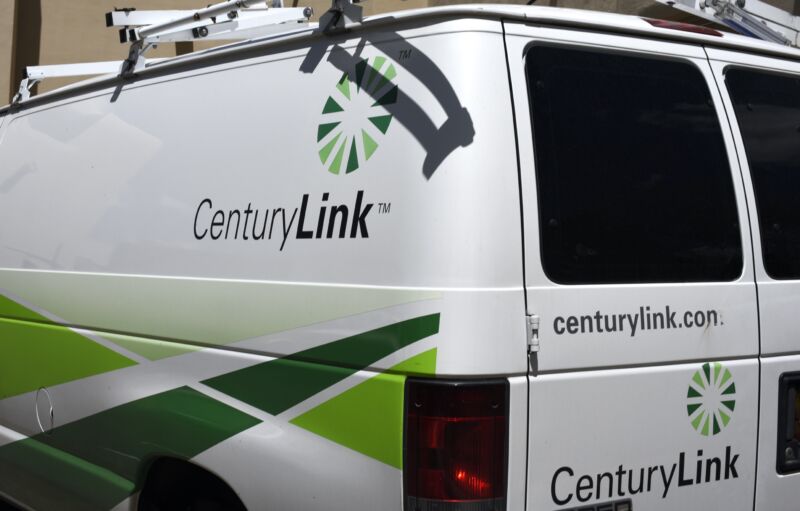
CenturyLink’s slow broadband deployment, already a problem before the pandemic, has gotten even slower as the public health crisis causes cities and towns to halt construction.
Since 2015, CenturyLink has received $505.7 million each year from the US government’s Connect America Fund to deploy Internet service to nearly 1.2 million homes and businesses in 33 states. CenturyLink was required to complete 80 percent of that deployment by the end of 2019 but recently told the Federal Communications Commission that it did not meet the end-of-2019 deadline in 23 of the 33 states.
CenturyLink still has not met the end-of-2019 deadline in those 23 states, the company told Ars today. CenturyLink was thus already likely to have trouble meeting the end-of-2020 deadline for completing 100 percent of the government-subsidized construction. Pandemic-related restrictions on construction have slowed CenturyLink down further, the company told FCC officials in a meeting described in an ex parte filing last week:
Like other network operators, however, CenturyLink is experiencing several pandemic-related issues that are disrupting and slowing broadband network deployment, including ongoing and planned deployment toward Connect America Fund (CAF) milestones. In some cases, localities have mandated a complete work stoppage that extends to broadband deployment. Numerous permitting agencies, particularly at the county and local level, are shut down or have scaled back operations, substantially reducing their ability to process permit applications. In addition, we are facing higher instances of backorders and product unavailability for electronics, fiber, and other equipment needed for broadband deployment. In sum, it is becoming increasingly apparent that this year’s CAF deployment schedule faces significant challenges.
CenturyLink asked the FCC to extend the deployment deadlines. “Even a modest initial extension at this time would substantially reduce pressure and facilitate network operators’ ability to address and successfully respond to pandemic-related challenges,” the company said.
In a statement to Ars today, CenturyLink said that it met the end-of-2019 deadline to reach 80 percent deployment “in 10 states and are close in the remaining states, where we are working diligently and expect to meet the milestone soon.”
The 23 states where CenturyLink failed to meet the deadline are Alabama, Arkansas, Colorado, Iowa, Idaho, Illinois, Indiana, Kansas, Louisiana, Michigan, Minnesota, Missouri, Montana, Nebraska, New Mexico, North Dakota, Ohio, Oregon, South Dakota, Utah, Virginia, Washington, and Wisconsin. Under program rules, CenturyLink must provide service with speeds of at least 10Mbps downstream and 1Mbps upstream.
USTelecom also pushed for deadline extension
A deadline extension would also benefit Frontier Communications, which is in bankruptcy and similarly notified the FCC that it may not have met the end-of-2019 deadline to hit 80-percent deployment in 13 states. We asked Frontier for an update on its progress this afternoon and will update this story if we get an answer. Frontier did report a surge in broadband expansion in a recent FCC filing.
USTelecom, an industry trade group, on March 27 asked the FCC to extend interim and final deployment deadlines by six months “in recognition of the impact this event has had and will have on existing and future deployment plans.” USTelecom also asked the FCC to waive “performance measurement-related penalties associated with the inability to test or underperformance of testing given the impact of the COVID-19 pandemic, including the inability to install physical equipment in homes to support such testing.”
Like other universal service programs, the Connect America Fund is paid for by Americans through fees on their phone bills.
https://arstechnica.com/?p=1673511

